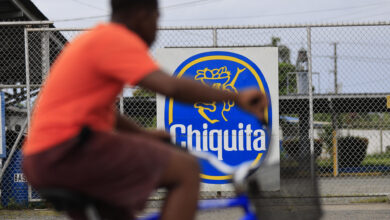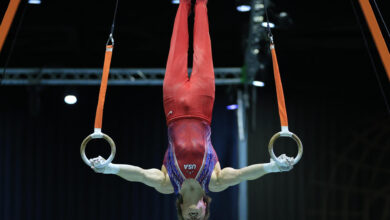Mental Fortitude Technology: Shaping Panama’s Olympic Athletes

In an era where sports and technology intersect more than ever, athletes are not just training to be faster and stronger physically but also mentally. This shift underscores the pivotal role of sports psychologists in Latin America.
The landscape of sports in Latin America has undergone a seismic shift over the past decade, mainly due to the integration of advanced technology in physical training and performance metrics. However, as athletes across the region and the globe aim for higher, faster, and stronger feats, the need for robust mental preparation has come sharply into focus. In Panama, the role of sports psychologists is becoming increasingly vital, particularly as athletes prepare for the intense competition of the 2024 Paris Olympics.
Since 2021, María Carla Sayavedra, the sports psychologist for the Olympic Committee of Panama (COP), has been instrumental in what she describes as “mental muscle building” for Panama’s Olympic hopefuls. Her approach emphasizes the importance of physical readiness and the critical nature of mental strength, a sentiment echoed by the athletes themselves. “They have shown me that taking care of their mental health is a priority and speaks volumes about them as human beings, not just athletes,” Sayavedra told the EFE news agency.
Embracing the Mental Game
The athletes preparing for Paris 2024, currently numbering four qualified individuals, are a testament to the growing awareness of the psychological demands of their sports. “We are working on the mental aspect within each sports discipline. We are connected and very aware of the importance of being mentally strong. I can attest that they are physically and mentally caring for themselves,” Sayavedra added.
This dual focus on mind and body is not just about coping with the pressures of international competition; it’s about optimizing performance in every possible way. For these athletes, understanding their thoughts and emotions and maintaining a positive mindset has allowed them to achieve remarkable success in their fields.
The Role of a Sports Psychologist
In high-stakes environments like the Olympics, the role of a sports psychologist becomes even more pronounced. Sayavedra explains that preparing mentally for high-performance athletics is crucial and takes on additional significance as athletes approach significant competitions such as the Olympic Games. “An elite athlete isn’t made overnight. It’s a process, like developing their mental and physical capabilities. That’s why we need to prepare their mindset for what the Olympic Games or the Olympic cycle will demand,” she emphasized.
Handling Victory and Defeat
A significant part of Sayavedra’s role involves helping athletes navigate the emotional landscapes of both victory and defeat. Dealing with loss consists of a process of mourning; it’s a setback that needs to be acknowledged and managed sensitively. “It’s a loss, and it’s important to validate their emotions first. I remind them that I am here when they’re ready to talk, and if they don’t want to talk, that’s also valid,” she pointed out.
In moments of triumph, it’s crucial to recognize the feelings of the moment and the journey that led to the achievement. “It’s important to acknowledge everything they’ve done to get here, not just the victory itself,” Sayavedra noted, underscoring the importance of celebrating the process as much as the outcome.
Integrative Techniques for Mental Training
In preparation for competitions, Sayavedra works with athletes to set goals and follow up on their training, providing mental tools and working closely with their coaches. Techniques like mindfulness—which involves meditation and focusing on the present—and visualization help athletes stay grounded and focused. “We often have to bring them back to reality, which is the only certainty they have at that moment,” she explained.
The frequency of consultations in Sayavedra’s office at the COP headquarters varies, depending on each athlete’s needs and training progression. The tailored approach ensures that each athlete receives the support they need to excel on and off the field.
The Broader Impact in Latin America
The significance of sports psychology extends beyond Panama. Across Latin America, where sports are often seen as pathways to educational and economic opportunities, the mental health of athletes is paramount. Countries like Brazil, Argentina, and Colombia, with vital sports programs, are beginning to emphasize the psychological aspects of training, recognizing that mental resilience is as crucial as physical prowess.
As Latin American athletes continue to make their mark on the world stage, the integration of sports psychology into their training regimens will likely increase. This holistic approach enhances performance and ensures that athletes can manage the pressures of competition healthily and sustainably.
Also read: Trial Commences for Panama Papers Money-Laundering Case
In conclusion, the evolving landscape of sports in Latin America reflects a broader shift toward recognizing and nurturing athletes’ mental agility. As professionals like María Carla Sayavedra continue to champion the cause of mental health in sports, the region’s athletes are set to reap the benefits, embodying the true spirit of resilience and excellence in the global arena.




